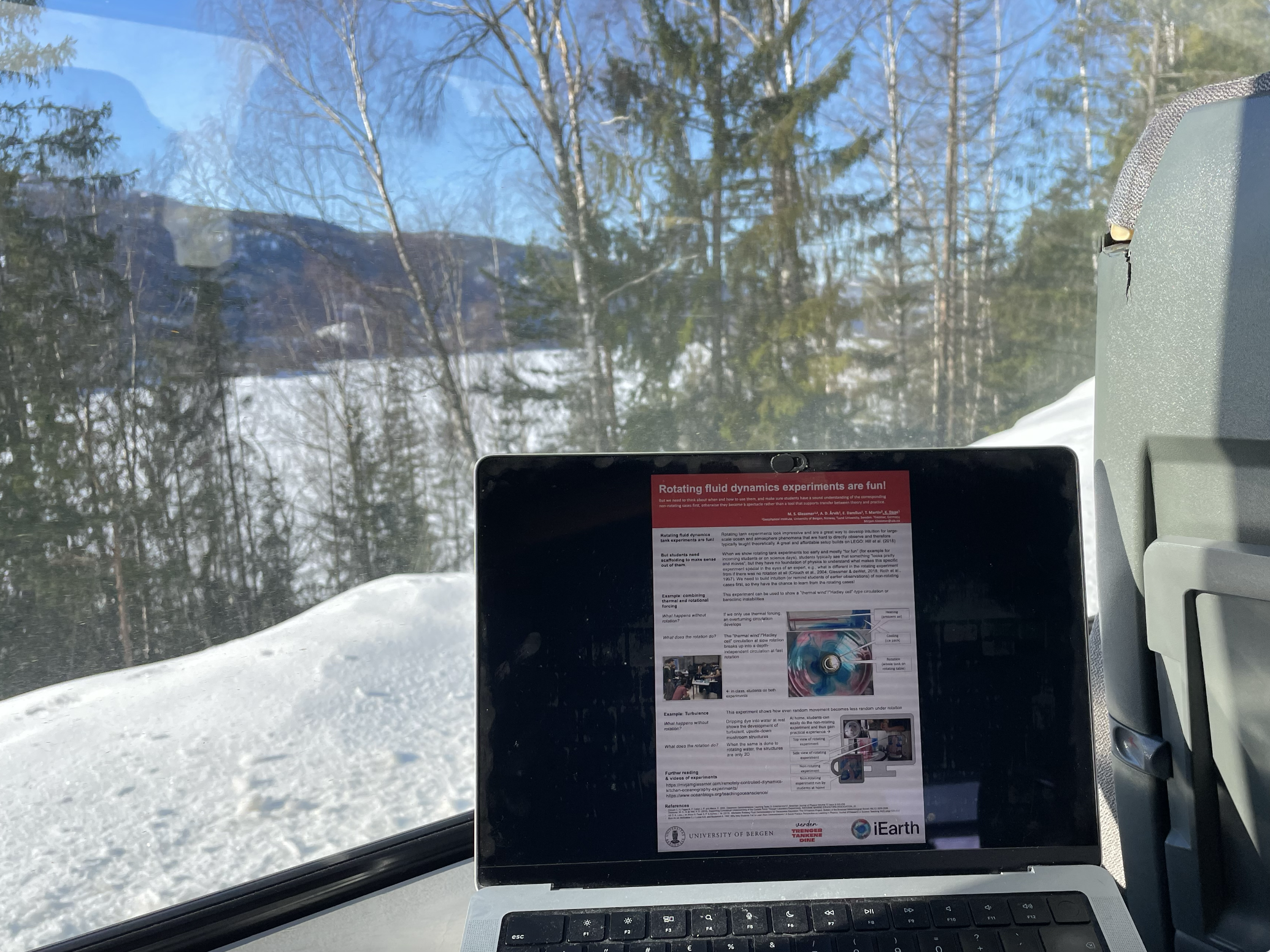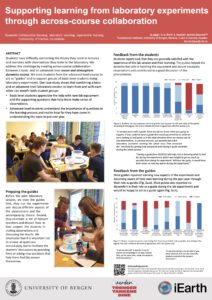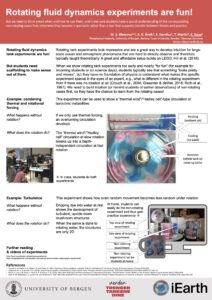
Preparing conference presentations on our DIYnamics experiments in across-course collaborative learning
In 2021, Kjersti and I gave a presentation at iSSOTL on our across-course collaboration project using rotating lab experiments. We’ve continued working with that, and Kjersti is presenting two posters and a presentation at the MNT conference in Stavanger tomorrow! For those of us who can’t be there, here is what she will talk about.
 The poster “supporting learning from laboratory experiments through across-course collaboration” is about our — and more importantly our students’ — experience with mixing courses from year 2 and 3 together in a lab.
The poster “supporting learning from laboratory experiments through across-course collaboration” is about our — and more importantly our students’ — experience with mixing courses from year 2 and 3 together in a lab.
In their own course, students in year 3 revisit the experiments they did the previous year with a year more of learning theory and context, and are then instructed to act as “guides” to the year 2 students in a shared session. There, year 2 students conduct experiments and year 3 students support that by asking questions, giving tips and hints, and generally being available for conversations.
We evaluate students’ perception and find that all students in year 2 appreciate the support in many ways, and also students in year 3 learn a lot from the experience (especially realizing how much they actually learned within a year, and how questions support learning) and would like to be a guide again. From our teacher perspective, it also worked really well: Students show better understanding in lab reports, and observing the lab sessions, we see constructive and insightful conversations. We also observed conversations where the year 2 students made use of the year 3 students’ experiences in other areas of being a student, e.g. asking for advice around an upcoming student cruise.
 In the second poster, “developing a sequence of experiments to support learning about rotating fluid dynamics at different university levels”, we discuss how rotating tank experiments can be used in a way that they are not just “a spectacle”, but actually contribute to learning. There are many reasons why students might not actually learn from experiments, including prior misconceptions that make them believe they observe something differently from what they actually see, or too much noise compared to the strength of the signal. We here suggest including non-rotating tank experiments to establish the “normal” case before conducting rotating experiments, and show what that could look like in different settings.
In the second poster, “developing a sequence of experiments to support learning about rotating fluid dynamics at different university levels”, we discuss how rotating tank experiments can be used in a way that they are not just “a spectacle”, but actually contribute to learning. There are many reasons why students might not actually learn from experiments, including prior misconceptions that make them believe they observe something differently from what they actually see, or too much noise compared to the strength of the signal. We here suggest including non-rotating tank experiments to establish the “normal” case before conducting rotating experiments, and show what that could look like in different settings.
Go listen to Kjesti’s talk and visit her at the posters! She’ll bring a rotating tank, so there is opportunity to play! :-)
Daae, K., Årvik, A. D., Darelius, E., Glessmer, M.S. (2023, March). “Supporting learning from laboratory experiments through across-course collaboration”. Presentation at MNT conference in Stavanger. (Link to pdf of poster here)
Glessmer, M. S., Årvik, A. D., Darelius, E., Martin, T., Daae, K. (2023, March). “Developing a sequence of experiments to support learning about rotating fluid dynamics at different university levels”. Presentation at MNT conference in Stavanger. (Link to pdf of poster here)
Finally published yesterday: "Student guides: supporting learning from laboratory experiments through across-course collaboration" by Daae et al. (2023) - Adventures in Oceanography and Teaching says:
[…] and that is what, after we presented this project at several conferences already (for example this spring: poster here), is now finally […]